Highland OCOP products face e-commerce competition
The One Commune One Product (OCOP) program has helped increase the value of agricultural products, opening up new economic development directions for many households. In mountainous areas, online marketing is an inevitable trend that businesses and production facilities pay attention to.
OCOP products in the highlands flourish
Before the State implemented the One Commune One Product (OCOP) Program, in the Western localities, although the potential of agricultural products and medicinal herbs was very rich, the products were mainly for family needs and trading in the narrow market within the district and neighboring areas. However, with the State's incentive policies on building OCOP products, the number of products in the Western districts increased steadily every year.
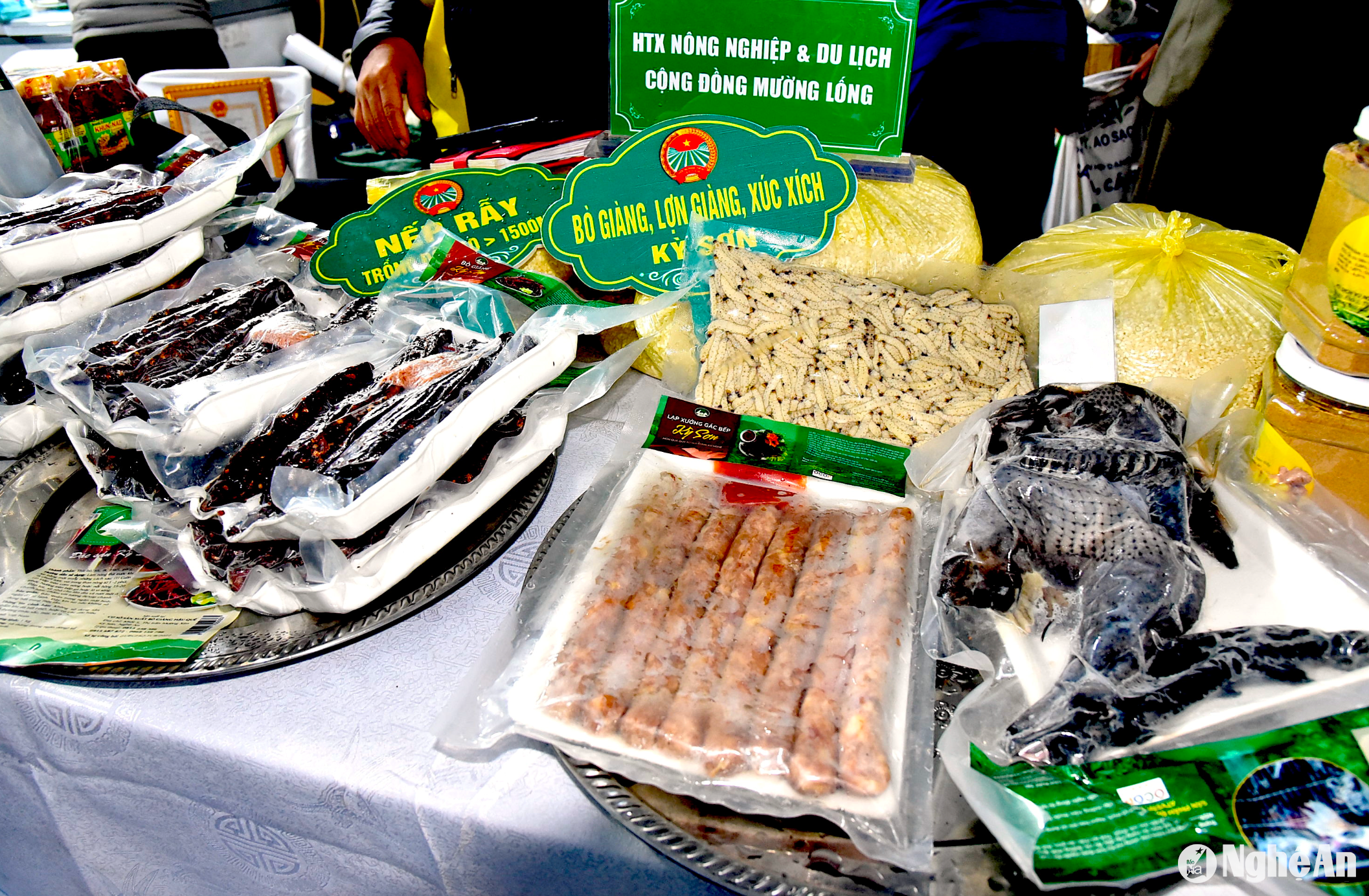
For example, in the farthest border district of the province, Ky Son, in the first year of implementing the OCOP program, only 1 ginger product was recognized with 3 stars. In 2022, Ky Son district had 6 OCOP products, and by June 2024, the number had increased to 14 products.
Mr. Vu Ba Xu - Vice Chairman of the People's Committee of Muong Long Commune, a locality quite far from the center of Ky Son District, said: Generations of Muong Long people have been attached to the mountains and forests; crops and livestock are mainly produced to serve daily needs. Only during holidays and Tet do they sell a small amount of agricultural products, or traders come to the place to buy buffaloes, cows, black pigs, or black chickens.
But now it is different, since the development of tourism services, agricultural products are processed into OCOP products and sold to homestay facilities, tourists, and households specializing in trading agricultural products. Thanks to that, not only the value of plants and animals is increased, but people also learn, apply and create more ways to process agricultural products, making more finished products.
For example, many households in Muong Long now know how to process black pork into sausages, hot dogs, and vacuum-packed pork; process black chicken and sticky rice into packaged and frozen bamboo tube rice to import to restaurants in the lowlands and sell to tourists from afar.
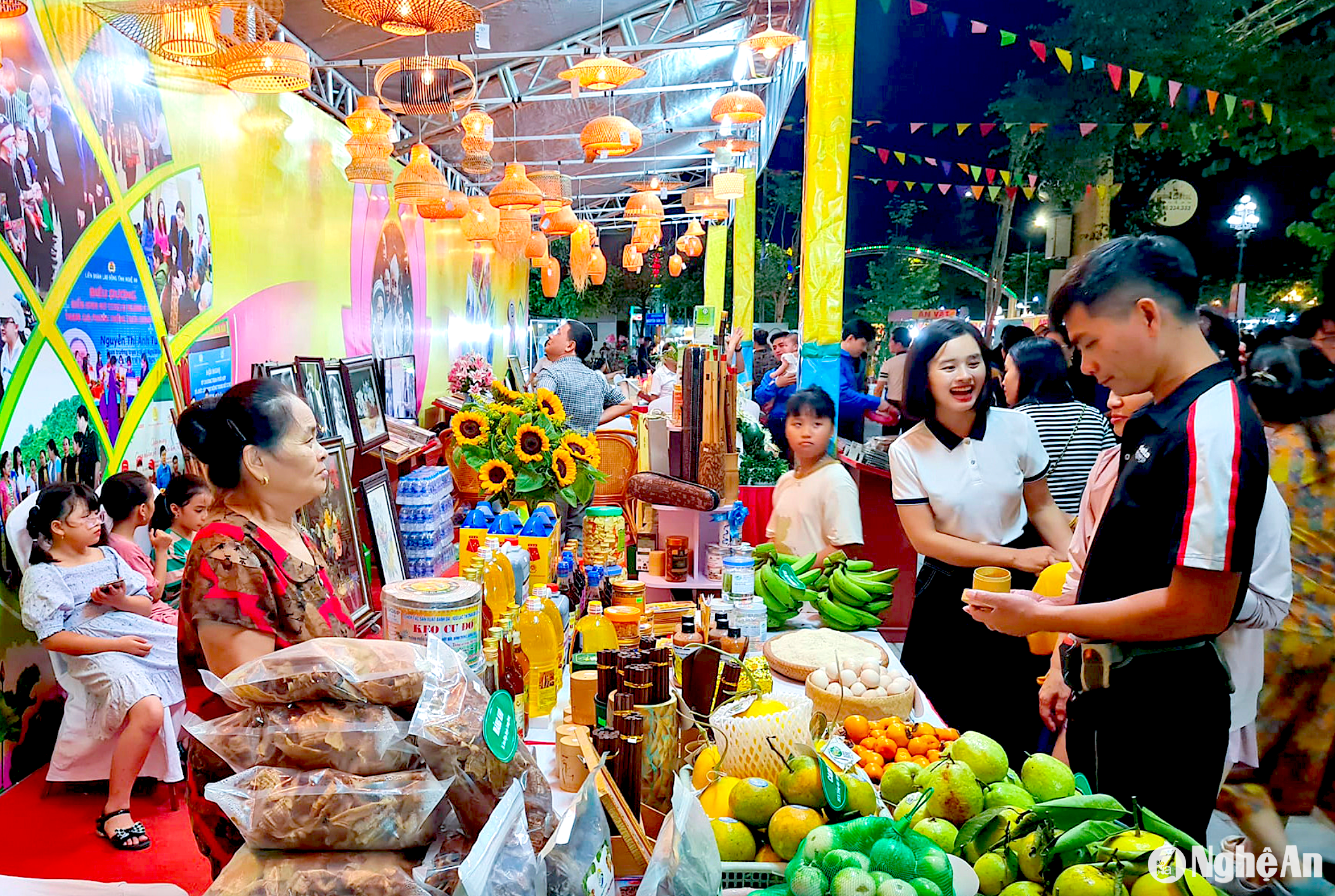
Similarly, in Quy Chau district, from 2 products meeting 3-star OCOP standards in the first year of implementation, the district now has 13 OCOP products reaching 3-star level. Along with developing OCOP products, Quy Chau district also aims to maintain and develop the production and business activities of 9 agricultural cooperatives, 7 craft villages, 3 craft villages, and 15 farms.
Along with that, we have registered trademarks and barcodes for 5 local specialty products. These are also factors that support maintaining the quality of OCOP products, developing new products and upgrading and "upgrading" the products that have achieved the stars.
The development of OCOP products is associated with the exploitation of local raw materials and geographical indications such as: Vinh oranges, Ky Son ginger, Thanh Chuong hill chicken, Que Phong yellow flower tea, Quy Chau incense, Giang river cool fish, Con Cuong leaf yeast wine...
Up to now, 94/562 OCOP products of Nghe An have entered the supply chain system, the system of food stores, department stores, OCOP product introduction and sales points. Many products have even been approved for import by other markets, such as France, Germany, the Netherlands, Sweden, Denmark, the US, Japan, Korea, etc.
However, although many OCOP products of Nghe An have been exported, most of them are being produced in lowland and coastal localities.
Competitive pressure in e-commerce
We visited one of the OCOP product production facilities of Anh Son district, located in Khai Son commune. Ms. Nguyen Thanh Nga, owner of Kim Nhan cereal powder production facility, said that she has been involved in the agricultural product processing and trading business since the State implemented the One Commune One Product Program.
In 2022, Ms. Nga's production facility processed and produced 7 products that met 3-star OCOP standards, including 3 main products: turmeric starch, cereal powder and herbal shampoo.
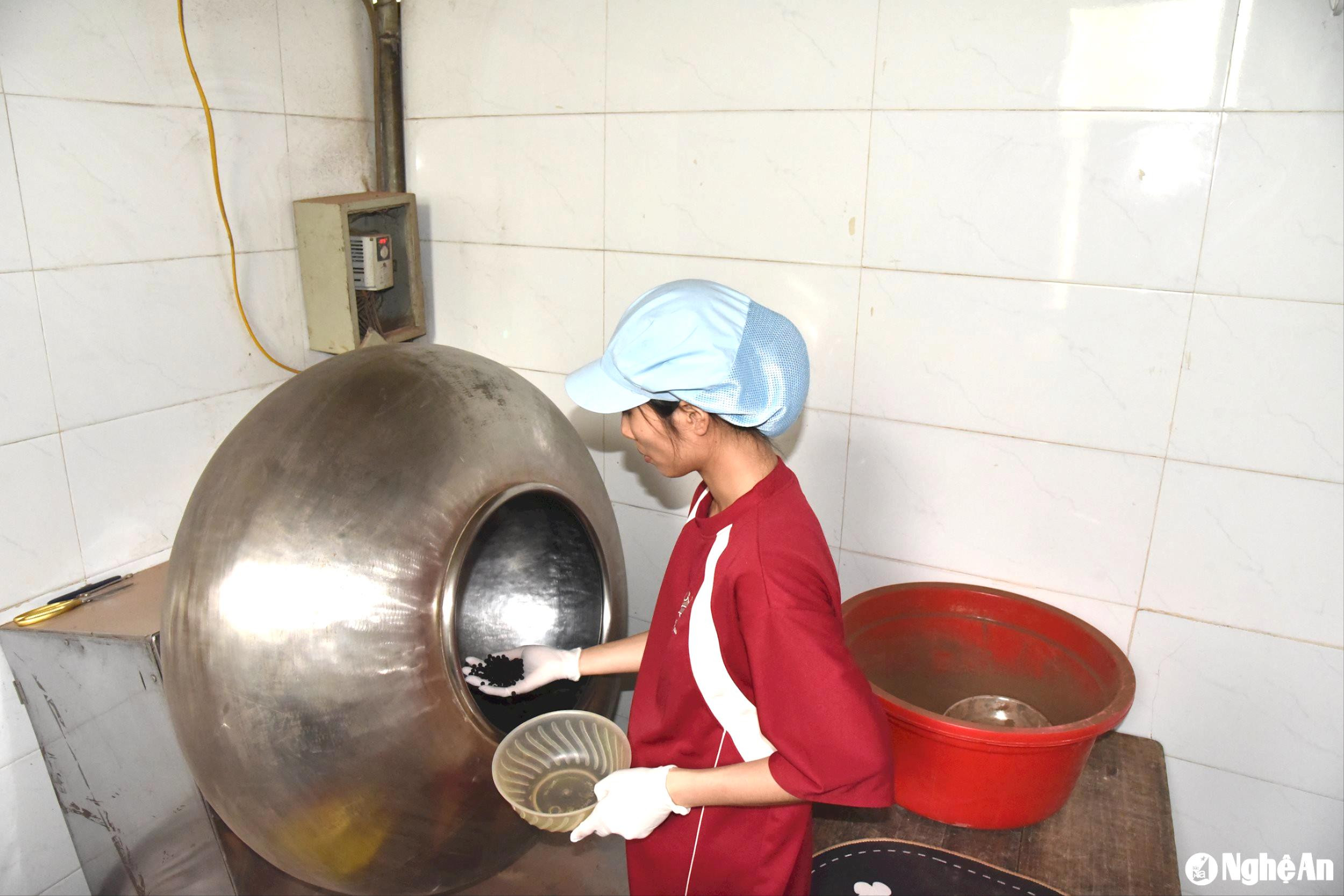
After more than 3 years of doing business, collecting agricultural products and researching and processing to find the formula for products with her own brand, Ms. Nga said that the market is increasingly competitive in both OCOP product types and product marketing channels. Producers today cannot ignore the promotion and introduction stage when social networks have more and more online sales features. And in order to focus more on marketing, in 2024, Ms. Nga's facility will only invest in 3 OCOP standard products.
Speaking more about this, Ms. Nga explained that there is no shortage of agricultural products to supply raw materials for production facilities like hers. However, if mass production is carried out and the remaining goods cannot be sold, it will lead to losses. With the modern sales trend, locating a store and selling directly to consumers is becoming less and less effective. On the contrary, the main sales "channel" of Ms. Nga and many other businesses is currently through Facebook, Zalo and e-commerce sites.
“Currently, there is also a sales channel through TikTok with very strong subsidy and stimulus policies. Along with Facebook's policy of tightening community standards, we are facing great competition from online sales channels. The same shampoo product, but sold directly and sold through Facebook, Zalo, Shopee... costs 245,000 VND/bottle; while sold through TikTok, the price is 20-30,000 VND lower, making it impossible for our products to compete,” Ms. Nga expressed.
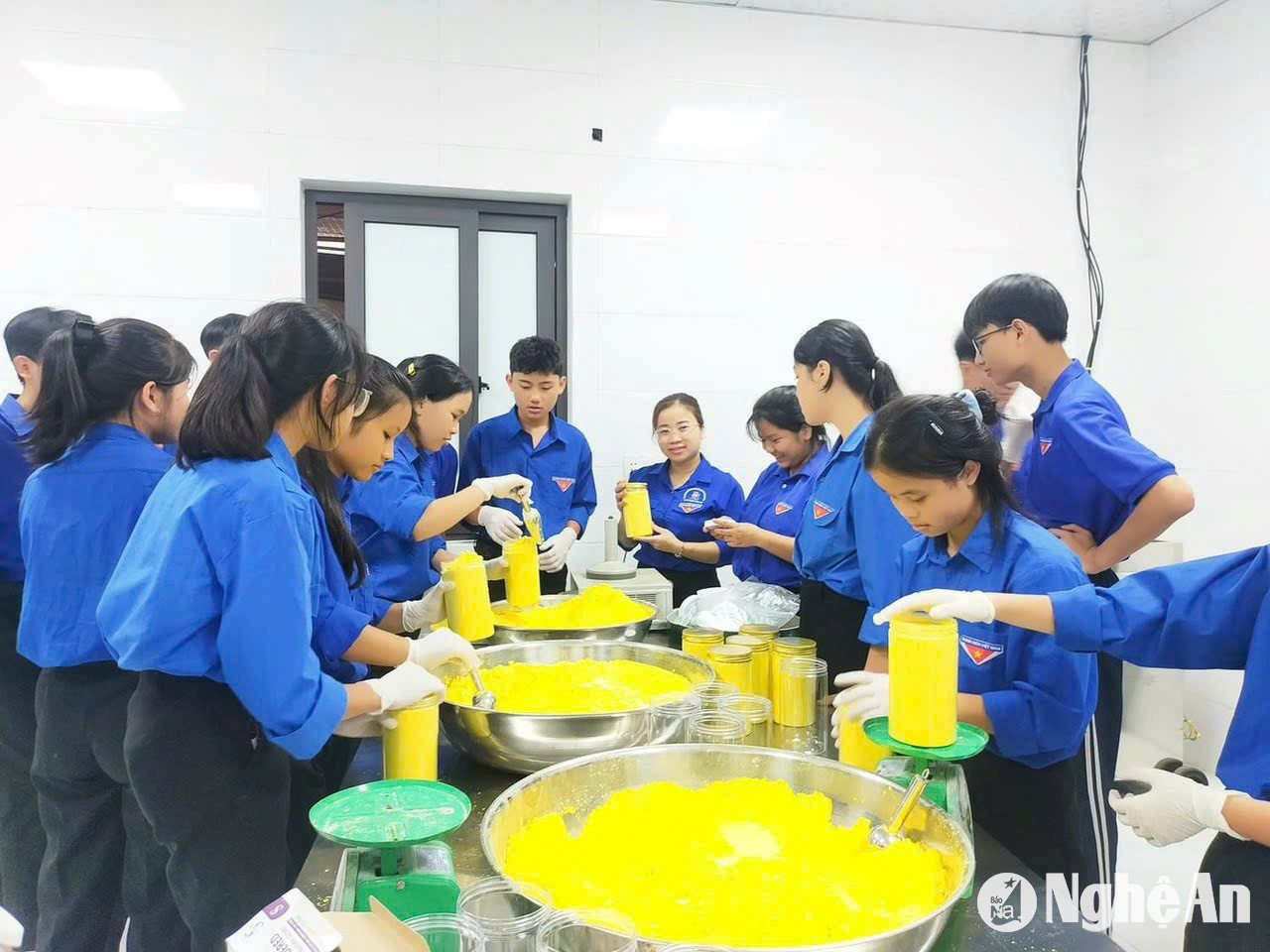
Due to the inevitable trend of competition, Ms. Nguyen Thanh Nga advocates reducing the number of products, focusing on investing in upgrading quality and increasing marketing.
“Each product that meets OCOP standards is supported by the State with about 30 million VND, I am completing the disbursement documents. With this additional support, I will invest in building an e-commerce site and promoting products online. However, investing in quality is still the top priority,” Ms. Nga emphasized.
Mr. Le Van Tri - Head of the Department of Agriculture and Rural Development of Anh Son district said that Anh Son district currently has 17 products recognized by the Provincial People's Committee as achieving 3 OCOP stars. The products are exploiting the potential of local agricultural products well, but the marketing and sales stages are still limited. Partly because the mountainous area is remote in terms of roads, the climate is also harsher. Besides, there are no introduction and promotion locations, and they are not effective, so most production facilities are having to approach customers themselves, and the most effective way at present is still online sales.
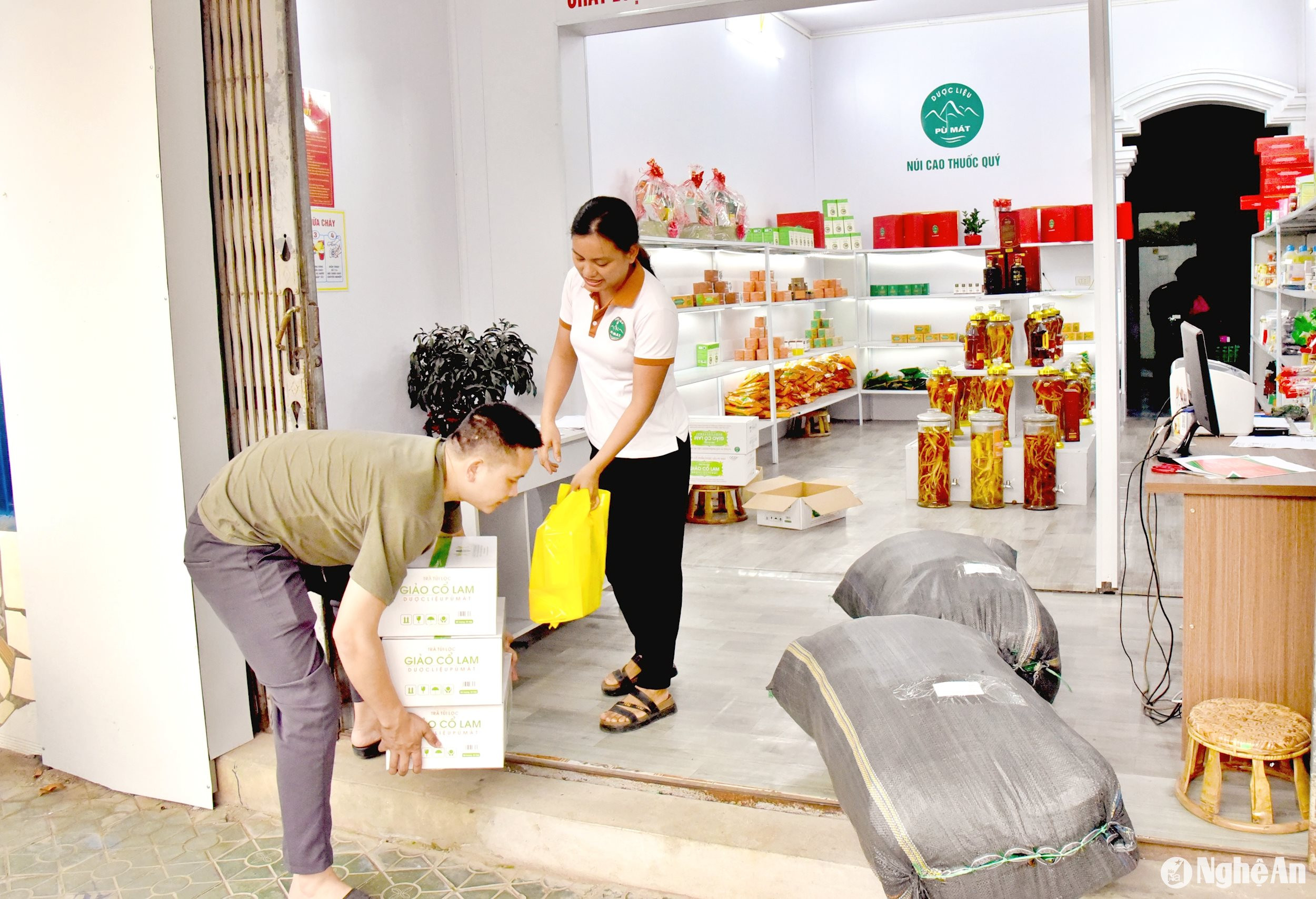
Not only individuals but also businesses and companies need to strengthen e-commerce channels. For example, in Con Cuong district - one of the mountainous districts with a large number of OCOP products, developing rapidly in the top of the province with 23 OCOP products, of which 7 products are recognized as 4 stars. In this locality, many businesses have identified online transactions as the main distribution channel.
By the end of May 2024, Nghe An had 266,373 agricultural production households listed on e-commerce platforms; 300,047 agricultural production households were trained in skills; 8,836 products were listed on the platform, ranking 5th in the country in terms of the number of agricultural products listed on the platform. Over 95% of OCOP products have participated in e-commerce platforms.
Nghe An Department of Industry and Trade
